The Politics and Practicalities of Publishing in Organization and Management Studies (Publishing in Academic Journals) - 3.5 ECTS
| Faculty | ||||||||||||||||||||||||||||||
| Associate Professor Joana Geraldi & Professor Christian De Cock, Department of Organization, Copenhagen Business School. | ||||||||||||||||||||||||||||||
Course Coordinator |
||||||||||||||||||||||||||||||
| Associate Professor Joana Geraldi & Professor Christian De Cock | ||||||||||||||||||||||||||||||
Prerequisites |
||||||||||||||||||||||||||||||
Aim |
||||||||||||||||||||||||||||||
|
Writing and publishing is integral to academic life. This course introduces PhD students to the process of writing an academic article, by supporting their own writing process. This course will not provide you with an idealized process to write an academic article, instead, our main objective is to shed some light on the actual writing process and its several twists and turns. |
||||||||||||||||||||||||||||||
Course content |
||||||||||||||||||||||||||||||
|
The course is divided into two parts: workshops and actual writing. The course starts with an intensive three-day workshop, when we will walk through the usual phases of writing, and discuss the writing process as well as its emotional and political labor involved in getting publications that we are proud of accepted in good journals. It will expose the participants to certain conceptual ideas and some practical tools, and exchange and discuss alternative writing practices. After the workshop, the participants are expected to develop a draft paper. The course creates a supporting environment to focus PhD students on the writing task:
|
||||||||||||||||||||||||||||||
Teaching style |
||||||||||||||||||||||||||||||
|
Lectures, group work, individual work, presentations by course participants, final report (paper draft). |
||||||||||||||||||||||||||||||
Lecture plan |
||||||||||||||||||||||||||||||
|
Preparation:
|
||||||||||||||||||||||||||||||
Learning objectives |
||||||||||||||||||||||||||||||
|
The learning objectives for the participants are to:
|
||||||||||||||||||||||||||||||
Exam |
||||||||||||||||||||||||||||||
|
The course participants will be assessed based on their class participation and final deliverable (i.e. paper draft). The submission will be evaluated as pass/no pass, and only through internal examiner(s). |
||||||||||||||||||||||||||||||
Other |
||||||||||||||||||||||||||||||
Start date |
||||||||||||||||||||||||||||||
| 09/11/2022 | ||||||||||||||||||||||||||||||
End date |
||||||||||||||||||||||||||||||
| 11/11/2022 | ||||||||||||||||||||||||||||||
Level |
||||||||||||||||||||||||||||||
| PhD | ||||||||||||||||||||||||||||||
ECTS |
||||||||||||||||||||||||||||||
| 3,5 | ||||||||||||||||||||||||||||||
Language |
||||||||||||||||||||||||||||||
| English | ||||||||||||||||||||||||||||||
Course Literature |
||||||||||||||||||||||||||||||
|
The course is based on journal articles about publishing, examples of outstanding journal publications and chapters of books, some of which are listed below. The reading list can be used on a ‘as needed’ basis. Day 1: Framing Davis, M. S. (1971). That's interesting! Towards a phenomenology of sociology and a sociology of phenomenology. Philosophy of the social sciences, 1(2), 309-344. Huff, A. S. (1999). Writing for scholarly publication. Thousand Oaks: Sage. Alvesson, M., & Sandberg, J. (2011). Generating research questions through problematization. Academy of management review, 36(2), 247-271. ________________________________________________________________________________ Day 2: Structuring Cuervo-Cazurra, A., Caligiuri, P., Andersson, U. & Brannen, M.Y. (2013). How to write articles that are relevant to practice. Journal of International Business Studies, 44(4), 285-289. Partington, D., & Jenkins, M. (2009). Deconstructing Scholarship: An Analysis of Research Methods Citations in the Organizational Sciences, 10(3), 399–416. Patriotta, G. (2017). Crafting Papers for Publication: Novelty and Convention in Academic Writing. Journal of Management Studies, 54(5), 747-759. Wallace, M. and Wray, A. (2006). Critical Reading and Writing for Postgraduates. Sage. Weick, K. E. (1989). Theory construction as disciplined imagination. Academy of management review, 14(4), 516-531. Whetten, D. A. (1989). What Constitutes a Theoretical Contribution? Academy of Management Review, 14(4), 490–495. Practical Case Example: Berg Johansen, C. & De Cock, C. (2018) ‘Ideologies of time: How elite corporate actors engage the future’. Organization, vol. 25 (2), 186-204. De Cock, C., Baker, M., & Volkmann, C. (2011). Financial phantasmagoria: corporate image-work in times of crisis. Organization, 18(2), 153-172. __________________________________________________________________________________ Day 3: Reviewing and progressing Cossette, P. 2004. Research integrity: An exploratory survey of administrative science faculties. Journal of Business Ethics 49: 213–34. Barczak, G. (2013) Thoughts on Academic Research Misconduct. Journal of Product Innovation Management, 30(3), 406. Clarke, C. and Knights, D. (2015) ‘Careering through academia: Securing identities or engaging ethical subjectivities?’, Human Relations. (online early: 1-24). Geraldi, J. (2021) Plagiarism in Project Studies. Project Management Journal, https://journals.sagepub.com/doi/full/10.1177/8756972820982443 Geraldi, J. (2021) Self-Plagiarism in Project Studies: A call for action and reflection. Project Management Journal. https://journals.sagepub.com/doi/full/10.1177/8756972820982445 Jeanes, E., Loacker, B. and Sliwa, M. (2014) ‘Research collaboration: Learning from experience’, in E. Jeanes and T. Huzzard (eds) Critical Management Research. London: Sage, pp. 41-60. Parker, M. (2013) ‘Becoming Editor: Or, Pinocchio finally notices the strings’, tripleC. 13(2): 461-474. Group exercise on case examples of the review process: It is based on four papers published in ABS/AJG three star journals listed below and their complete review processes including letters to and from the editors and reviewers: Beyes, T. & De Cock, C. (2017). ‘Adorno’s Grey,Taussig’s Blue: Colour, Organization and Critical Affect’, Organization, vol. 24 (1), 59-78. [http://dx.doi.org/10.1177/1350508416668189 ] De Cock, C., Nyberg, D & Wright, C. (2021) ‘Disrupting climate change futures: Conceptual tools for lost histories’, OnLine First, Organization, [https://journals.sagepub.com/doi/10.1177/1350508419883377] Muhr, S.L., De Cock, C, Twardowska, M. & Volkmann, C. (2019) ‘Constructing an Entrepreneurial Life: Liminality and Emotional Reflexivity in Identity Work’. Entrepreneurship and Regional Development. [https://doi.org/10.1080/08985626.2019.1596348 (Links to an external site.)] Nyberg, D. & De Cock, C. (2019). ‘Processes of domination in the contemporary workplace: Managing disputes in the Swedish health care sector’. The Sociological Review. [https://doi.org/10.1177/0038026118825235 (Links to an external site.)] |
||||||||||||||||||||||||||||||
Information about the Event
Date and time Wednesday 9 November 2022 at 09:00 to Friday 11 November 2022 at 16:00
Registration Deadline Wednesday 9 November 2022 at 09:00
Location
Dalgas Have - Room: DH.V.0.20
Dalgas Have 15
Frederiksberg
DK-2000
 Loading
Loading



